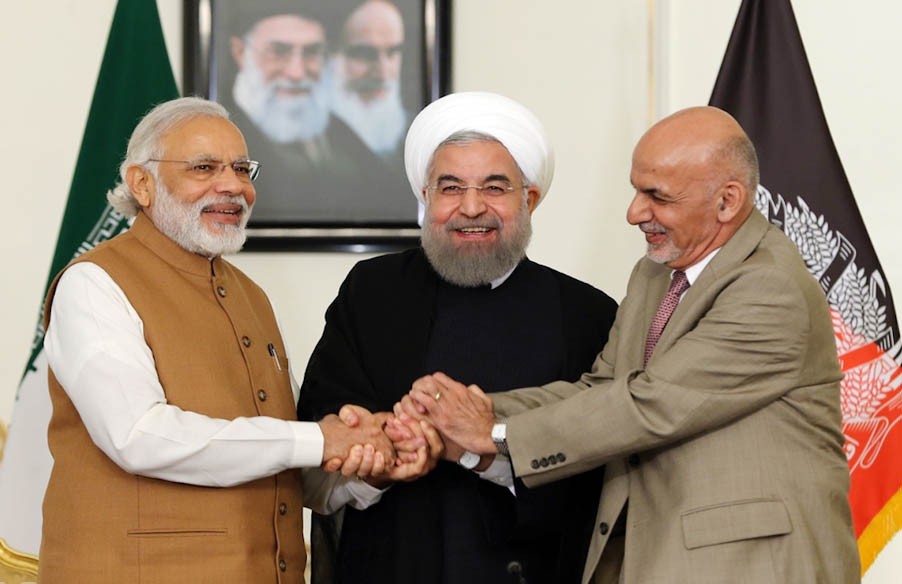
Many wonder why Pakistan has historically been unable to build constructive ties with its neighbours with the sole exception of China

Just a month before the China-US summit in 2002, the Chinese presidential plane was found bugged and an investigation highlighted that spying gadgets were planted by US officials during the refurbishment of the plane in Texas. The world anticipated that this controversy would lead to the cancelling of the summit or, at least, would overshadow the talks -- skewing the space for bilateral discussion on other important matters.
However, both the leaders showed exemplary statesmanship and the talks proceeded without much mention of the derisive incident. The Chinese carefully assessed the situation and decided not to derail the important summit in favour of long term benefits. Certainly, serious and rational states behave in such way where temporary losses are ignored to gain important long-term interests.
In a similar case, Pakistan arrested an Indian spy from Balochistan who was believed to be based in Iran. In the realm of international politics, spying against other states is a known and a recognised fact and there was nothing unique about this. However, Pakistani officials were furious and they decided to take the matter up with the Iranian President who was due in Islamabad a few weeks later.
Iran, after nuclear deal with the world powers, is ready to become a strong regional state and is poised to be an emerging economy as well. Ideally, Pakistan should have been looking to forge closer ties with Iran to improve its economy, trade, meet energy needs and connect with Turkey and other Middle Eastern states. But owing to the civil-military rift to control foreign affairs and handling of such affairs by inept and ham-fisted officials this ideal opportunity was lost and Iran embarked on the way to develop closer ties with India and Afghanistan, much to the chagrin of both Islamabad and Rawalpindi.
Many wonder why Pakistan has historically been unable to build constructive ties with its neighbours with the sole exception of China. Let us assume that Pakistan is right in not improving relations with India given our long-standing animosity over a number of issues and systematic hatred for Hindus. But then what happens to us when it comes to Muslims countries especially when our constitution guides to form friendly relations with other Muslim states? Hence, the problem is far graver than one can imagine.
One explanation for Pakistan’s unfriendly relations with its neighbours is the consistent absence of democracy in the country. This concept has been developed through the Democratic Peace Theory which argues that countries which are governed by republican principles and where the masses decide their fate are less likely to engage in war or show hostilities towards other states. For democratic regimes find the cost of war very high and people find no compelling reason to leave their comfort zones and sacrifice their peace for any abstract cause. Pakistan, which has long been governed under the shadow of the military, fails to fulfil this criterion.
Immanuel Kant, in his noted essay Perpetual Peace, argued that a state working under republic constitution and democracy "can avert war, endures, spreads and holds back the stream of hostile passions". Advocating and affirming the same voice, Francis Fukuyama also pens down the need for liberal democracy to avoid war. For him, people in liberal democracies compete for better economic and trade opportunities rather than constantly engaging in battles with other nations.
Noting the examples of democratic Europe since World War II, the fall of the Berlin Wall, the break-up of the Soviet Union and the Chinese tendency to liberalise the economy, he goes on to say that ‘end of history’ will be the world embracing liberal democracy in letter and spirit. This End will mark lasting peace as democratic states invariably tend to avoid war in favour of better future for their citizens.
In a democracy, a government feels responsible and answerable to its people. Since common needs like education, health and employment are priorities of the masses so the state also endeavours to provide the same. Now to render these facilities, the state has to adopt a conducive environment of economic competitiveness, innovation and entrepreneurship and explore export markets in other countries. This all can only be achieved in the time of peace. Resultantly, a self-governing nation cannot afford to wage war or maintain malevolence towards other states.
Unfortunately, lack of democracy in Pakistan has nurtured a skewed approach and relationship of the country with its neighbours. For nearly half of its life, Pakistan has been either directly or indirectly ruled by the military, and so there has been distinct lack of the people expressing their will in terms of governance. Since there is a disconnect between the rulers and the ruled, the democratic will of the people is not exhibited in policy and hence there is a preponderance of hawkish thinking which only supports the interests of a few.
Pakistan is now on the road to democracy, but until and unless the civilian government takes over the reigns of policy, both foreign and domestic, real democracy will not take roots. The civilian government too needs to reflect the interests of masses so that a real representative government might be instituted. A stable Pakistan with a sensible foreign policy can only be realised with a concrete institution of democracy.
The writers work at the Centre for Governance and Policy, IT University, Lahore